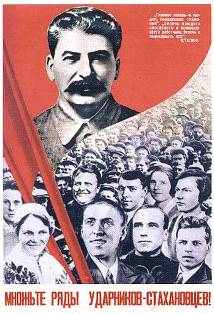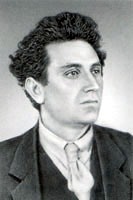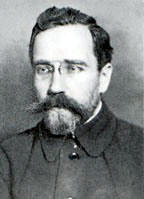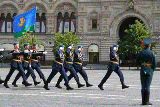As telenovelas foram exibidas na Argentina, Chile, Brasil, Chile, Bol铆via, Col么mbia, El Salvador, Equador, Guatemala, Honduras, Nicar谩gua, Panam谩, Paraguai, Peru, Porto Rico, Eslov谩quia, Eslov锚nia, Estados Unidos e Espanha.
A trama foi exibida$5 minimum deposit online casinocap铆tulos duplos, entre 06 de junho e 21 de julho de 2012, substituindo "Bicho da Vida"
|
|
|
|
The New Breed of
Communists |
|
"Gorbachev Factor"
|
In
the struggle for power that ensued after Lenin锟絪 death in January
1924, Stalin showed what it meant to rule over the apparatus. His
position in the Secretariat allowed him to expand his base of
support in localities and at the center by ousting his opponents and
filling all more or less important posts with his own appointees.
Stalin selected people who were personally loyal and obedient to
him. At the same time, they tended to be leaders inclined to tough
administrative methods. Most of them had joined the party during the
civil war and had received their primary political schooling in the
conditions of war communism. |
 |
The
new breed of Communists rejected the more liberal principles of the
NEP, condemning them as deviations from a 锟絫rue revolutionary path锟?
to socialism. They wanted to build the new society quickly, relying
on administrative pressure, military-style organization, and
directives from above. These were the methods that had stood them in
good stead in the postrevolutionary period of war communism and the
civil war. What they lacked in education and culture was compensated
by 锟絩evolutionary impatience锟? the desire to achieve the cherished
goal of socialism at one stroke, in one great leap, skipping
intermediate stages. Their optimism was sustained by the belief in
their class superiority, conferred on them by Marxism.
|
The interests of the rising new party-state bureaucracy came into conflict with
those of the old political elite锟絫he Bolshevik old guard. As a result, a power
struggle ensued within the ruling Bolshevik oligarchy. Stalin锟絪 elevation was
due to his ability to promote the new ruling elite and express its interests. By
relying on his cadres, he sought by every available means to undermine the
authority of the more important of the Bolshevik leaders, who could be real or
potential rivals in the struggle for power. He skillfully manipulated the party
debate on the theory and practice of socialist construction, branding the views
of his opponents as anti-Leninist.
 |
This allowed him to revile and demote all outstanding party
intellectuals, including Lev Trotsky (1879锟?940), Grigory Zinoviev
(1883锟?936), Lev Kamenev (1883锟?936), and Nicholas Bukharin
(1888锟?938). By the end of the 1920s, they would be removed from
positions of power and their supporters purged from the party and
state bodies and replaced wholesale by Stalin锟絪 followers.
|
 |
Stalinism is usually associated with the period of Soviet history
that began in the early 1930s and led to the 锟絞reat terror锟?in the
second half of that decade. However, in many essentials Stalinism
had been in evidence as early as 1926锟?7. Already at that time
Stalin锟絪 personal qualities and his unscrupulous politicking in the
bid for absolute power had led to the emergence of a new kind of
authoritarianism based on the characteristics of the evolving Soviet
political system. The new regime claimed to be the dictatorship of
the proletariat but was in effect a dictatorship of the party that
was quickly transformed into a dictatorship of its central
apparatus. In the late 1920s and early 1930s Stalin put the party
and government apparatus under his undivided control and established
a personal dictatorship.
|
|
|
|
"Great Leap" to Socialism |
|
Soviet Russia |
|
|
|
Images &
Video |
|


 |
|